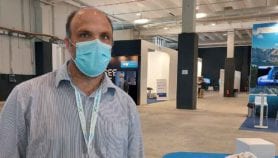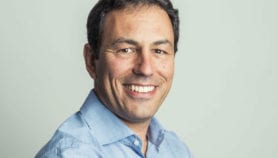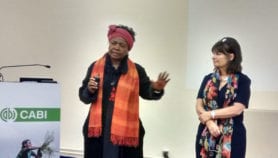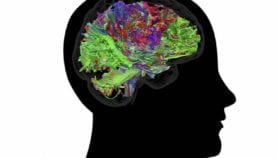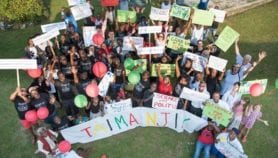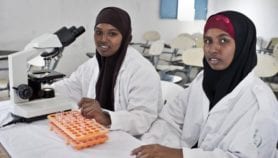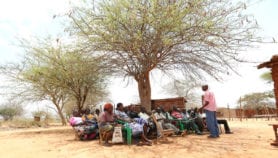By: David Dickson
Send to a friend
The details you provide on this page will not be used to send unsolicited email, and will not be sold to a 3rd party. See privacy policy.
The end of the first year of operation of this website is an appropriate time to reflect on experience so far and plans for the coming year.
A first birthday is always a significant occasion for an organisation. It provides an opportunity for reflection over the progress achieved in the initial year of existence. Perhaps more importantly, it is also a time to consider the implications of experience during that first year for future goals and expectations.
SciDev.Net is no exception. Since the launch of our website at the beginning of December last year, we hope that we have met our initial commitment to provide topical news coverage of scientific and technology issues with implications for the developing world. These have ranged from purely scientific discoveries, such as the publication of the genome sequences for rice and the malaria parasite, to major events such as the World Summit on Sustainable Development (WSSD) held in Johannesburg at the end of August.
In providing such coverage, we have made use of our own reporting staff, of a growing network of freelance contributors across the world, and of news, scientific and feature material appearing in the journals Nature and Science and other publications. We have also explored ways in which the technological possibilities offered by the Internet open up new ways of covering topics. These include in particular the ability to place individual news items in both a social and historical context, the first by providing direct links to the website of the main actors and stakeholders involved, the second by linking to previous material appearing on this website and related material elsewhere.
These new technological opportunities also lie at the centre of our efforts to create packages of authoritative analysis, informed comment, news and background information on important science-related topics in our 'dossiers'. Here we recognise that a significant amount remains to be done to fulfil the ambitious plans laid out when SciDev.Net was launched. Nevertheless we remain convinced that dossiers conceived in this way can meet an important need, particularly in providing a 'Southern voice' in discussions that remain too often dominated by those from the North.
Furthermore we hope that the dossiers that have been launched over the past year — on indigenous knowledge, on genetically modified crops, and most recently on the ethics of medical research — illustrate the potential that exists. Shortly to come is a dossier on the brain drain, which will explore not only the scope of the problem but also how attitudes to it have evolved in recent years. Priority topics for next year are HIV/AIDS, biodiversity, research policy and genomics.
Lessons learnt
So what have we learnt? Firstly, the generally enthusiastic responses to our efforts, from individuals in both developed and developing nations, has confirmed our original impressions of both the need for and potential of a service such as the one that we are attempting to provide. The 'knowledge gap' between rich and poor nations remains one of the major obstacles to genuine global development, in all its forms. The Internet on its own will not bridge this gap; but it can make a unique and vital contribution to efforts to do so.
At the same time, we have also learnt that, in practical terms, some of this potential is difficult to realise. Perhaps the most obvious example has been the challenge of generating feedback from users of the site. In principle — and as envisaged in our initial plans — electronic publication offers an unprecedented opportunity for two-way electronic dialogue. In practice, while some users of this site have used this opportunity, the majority have preferred to remain silent.
We would love to hear more from you. At the same time, we are keen to explore ways in which such dialogue can be structured more effectively. For example, we are reducing the initial emphasis on structuring comments around individual items appearing on the website, and have recently introduced a single 'Letters to the Editor' page, hopefully giving thoughtful comments a greater prominence. Other modifications are being contemplated; suggestions for improvement in this area would be welcome.
So, too, would comments on the design and operation of the website. Inevitably several weaknesses have emerged during the year. Some have been dealt with as they arise. Others await a face-lift that we are planning to carry out in a few months' time. Critical reactions from users has provided important indicators of where the need for modification is greatest. Again further guidance would be most welcome, particular over the next few weeks.
Capacity building
Perhaps the most important lesson we have learnt over the past year, however, is that the task of bridging the 'knowledge gap' involves capacity building as much as increasing the flow of information. It was an initial emphasis on the second of these goals that lay behind the original conception of SciDev.Net as primarily a website, conceived as an electronic science magazine. A growing awareness of the importance of the first goal, however, has lead to a rethink. We now define ourselves not solely as a website, but as an organisation committed to capacity building in this field.
The website remains the core of our efforts to fulfil this broader mission. But the redefinition increases the importance of two parallel activities, both of which have been absorbing a growing amount of our efforts. The first is the creation of regional networks of individuals and institutions that share our broad goals and objectives, in particular to raise the ability of developing countries to engage in informed debate on science-related issues.
The first of these, SciDev.Net Africa, was launched at the beginning of a four-day workshop on science communication held in Entebbe, Uganda, at the beginning of October. (See 'A welcome to SciDev.Net Africa'). A similar network covering Latin America and the Caribbean, hopefully with 'nodes' in Brazil and Venezuela, will be launched in May. And there are plans to launch SciDev.Net South Asia towards the end of next year, and in China/East Asia and the Middle East in 2004.
Practical workshops
The second activity is the organisation of practical workshops on science communication. Here we have found a strong grass-roots demand for training in the practical skills required by science communicators, which include not only journalists and public information officers, but also scientists keen to engage in this field, as well as policy experts aware of the importance of communication in catching the attention of decision-makers.
We have also found, gratifyingly, a growing awareness among aid agencies and other organisations of the importance of effective communication of information about science and technology. And thus a willingness to support the type of capacity building in this area that we are keen to help provide.
Last year, for example, saw two important workshops. The first was held in Tobago, in association with the InterAcademy Panel. The second, as mentioned above, took place in Entebbe, and focused in particular on the challenges to science communication in sub-Saharan Africa. These were complemented by various other events, in particular two roundtable discussion meetings on the same topic that were organised during the WSSD (for information these and other activities, go to SciDev.Net events).
Next year, while continuing to address the broader issues, we also plan to become more focused. In particular, we are pleased to announce a workshop for women communicators being run jointly with UNESCO on the use of information and communication technologies in reporting on the science of HIV/AIDS. The first of these, for which applications are now being invited, will be held in Uganda in April (click here for more details). Hopefully this will be repeated in South Asia in the second half of the year.
Long-term plans
Plans for the longer terms are now being sketched out. The generosity of our initially three sponsors — the UK Department for International Development (DFID), the Swedish International Development Agency (SIDA), and the International Development Research Centre (IDRC) in Canada — have given us the initial financial security to build a platform for moving forward. The task ahead is to develop both a strategic vision, and a practical plan for implementing this vision, that is sufficient to allow us to generate comparable support for the longer term.
This is, perhaps, the greatest challenge to SciDev.Net — including its trustees, its staff, its associates, and its users — in the year ahead. Here the regional networks in particular will provide a way of ensuring that the views of our user community in the developing world form the basis of these long-term plans. Once again, we invite your input and your suggestions.
Finally SciDev.Net will only grow and prosper if those who, we hope, can benefit directly from what we offer are aware of its existence. One of the most important lessons we have learnt over the past year has been the value of our weekly e-mail alert (as well as the foreign translations of the weekly alert on the website) in promoting this awareness, and encouraging individuals to visit the website.
A practical short-term goal is therefore to build up the circulation of this e-mail list. Any help in achieving this, for example, by suggesting organisations prepared to circulate information about SciDev.Net to its members, or by encouraging friends and colleagues to register with us, would be greatly appreciated.
© SciDev.Net 2002
More on Networks

Script media release
Journalists offered ‘big break’ mentoring opportunity from Radio Nigeria
03/04/19



